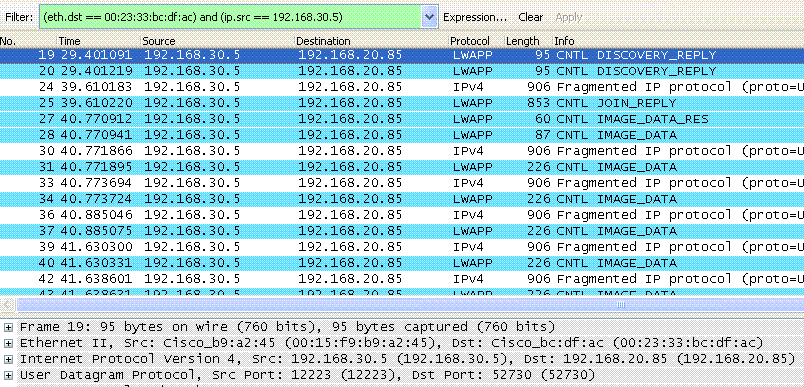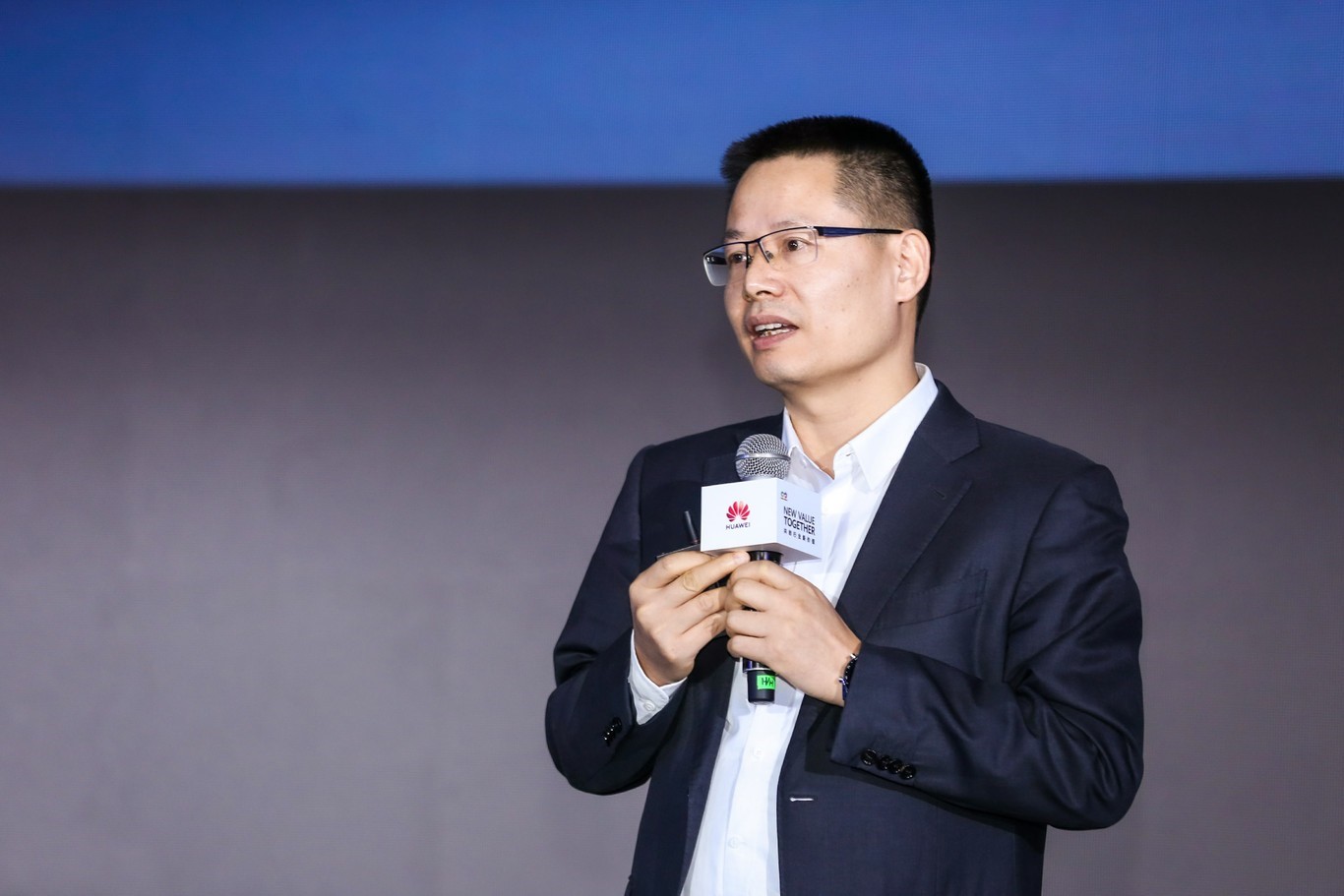































[Shanghai, China, September 25, 2020] At HUAWEI CONNECT 2020, Huawei held an inspiring summit themed "Accelerating Industry Digital Transformation Through All-Scenario Intelligent Connectivity". At this summit, Huawei announced that it has fully upgraded its intelligent IP network solutions, reshaped two platforms (software and hardware), reinvented the three-layer architecture of intelligent IP networks with "super capacity, intelligent experience, and autonomous driving", and further innovated "four-engines". These strategic moves reaffirm Huawei's relentless efforts to develop scenario-tailored solutions with partners and customers, creating new drivers for digitalization across industries.

Kevin Hu, President of Huawei's Data Communication Product Line, announces full upgrades of Huawei's intelligent IP network solution
Data communication networks have evolved from IPv4-based networks for man-machine interaction in the IP era, to multiprotocol label switching (MPLS)-based networks for people-people interaction in the all-IP era, and finally to the networks in today's intelligent IP era. In this latest era, IPv6+ technology is leveraged to allow all things to be connected, and differentiated services and deterministic experience assurance are provided. In particular, intelligent IP networks have become the cornerstone of industry digital transformation, and seamless and smooth data flowing unleashes the full potential of data aggregation.
In line with its "intelligent IP network" development strategy, Huawei has announced the following strategic moves at the summit:
Huawei has fully upgraded its hardware platform that stands out with built-in AI acceleration engines to enhance data processing, thereby fully supporting intelligent IP networks. To support massive connectivity of everything, large-capacity modular devices are equipped with 400GE ports capable of addressing digital deluge, while compact fixed-form devices support extensive access from 155 Mbit/s to 400 Gbit/s. Such hardware features pave the way for building an ultra-broadband, intelligent, and green intelligent IP hardware platform for customers.
With regards to software platforms, traditional IP device software is closed, clumsy, and unresponsive to services. Huawei reshapes the IP network operating system by using its new software platform YUNSHAN. The platform has an agile, intelligent, and open architecture, and allows for flexible assembly using modular functional components across devices, facilitating quick delivery according to customer requirements. YUNSHAN is endowed with over 20 built-in AI algorithms to support millisecond-level inference, injecting new capabilities into intelligent IP networks. What's more, the platform's more than 400 open application programming interfaces (APIs) easily connect to northbound NMSs, thereby implementing flexible device management and control.
Traditional IP networks focus on traffic growth and have to continuously improve network capacity to solve traffic-related problems. In the cloud era, how can IP networks quickly access the cloud? How can cloud-network synergy and convergence be implemented? The answers lie in optimizing the IP network architecture.
Huawei introduces AI to redefine the 3-layer intelligent IP network architecture, and upgrades to 400GE ports to support ultra-broadband non-blocking forwarding and network slicing. This results in a super capacity that ensures network bandwidth quality.
Huawei also upgrades the Intent Engine by using AI to identify service network intents, adjust network resources in real time, and continuously meet service requirements. This achieves intelligent experience featuring deterministic experience assurance.
The Intelligence Engine is upgraded using knowledge graphs to automatically deploy and quickly adjust network-level services while automating network troubleshooting. These autonomous driving capabilities improve O&M efficiency.
The newly upgraded Huawei iMaster NCE, the brain of intelligent IP networks, provides northbound agile open containers (AOCs) and intent-driven APIs to facilitate easy customizations. By introducing digital twins to support big data analytics, iMaster NCE implements intent-driven deployment and fault prediction. Southbound APIs provided by iMaster NCE realize multi-vendor compatibility, efficiently orchestrating heterogeneous networks and greatly saving customer investments.
In the campus network field, Huawei has upgraded its CloudCampus Solution from 1.0 to 2.0. In future enterprise campuses, more IoT terminals will get connected, traffic will change greatly alongside service migration to clouds, and management will become more complicated with further data aggregation. To address these, Huawei CloudCampus 2.0 provide compelling features such as unified access, one-hop-to-cloud, and unified intelligent management. In this way, campus network operations transform from manual to intelligent, paving the way for building a fully connected, intelligent campus network.
In the data center network field, Huawei's newly upgraded CloudFabric 2.0 Solution further improves network intelligence. By efficiently analyzing root causes of faults using knowledge graphs, this solution increases the fault detection rate to as high as 98%. CloudFabric 2.0 builds on an open architecture and can connect upstream to multiple clouds and downstream to devices from multiple vendors, reducing OPEX by 28%. This capability can help the financial services industry to accelerate progress towards Bank 4.0. The high-density 400GE and intelligent & lossless data center network features zero packet loss and low latency, improving computing power by 27% and data storage IOPS by more than 30%, thereby unleashing the power of efficient computing power and data storage. With all these highlights, Huawei CloudFabric 2.0 injects new momentum into new infrastructure construction.
In the WAN field, Huawei's latest CloudWAN 2.0 Solution introduces the next-generation protocol IPv6+ in an end-to-end manner to implement cloud-network interconnection in minutes and realize one-hop-to-cloud for enterprises. Standing out with IPv6+ network slicing capabilities, CloudWAN 2.0 provides 100% bandwidth guarantee for production services while meeting differentiated service requirements. This feature-rich solution also takes the lead in introducing AI technologies, which locates faults in minutes and proactively predicts faults, leading WANs to the all-service intelligence era.
In the network security field, Huawei's HiSec 2.0 Solution provides significant upgrades in terms of platform architectures, threat detection and analysis, and security ecosystems. An open platform simplifies solution deployment, and the embedded AI engine (AIE) improves threat detection capabilities, bringing more benefits to partners and ensuring solution reliability. All these highlights make HiSec 2.0 ideal for building a secure space in the digital world.
Intelligent IP is widely applied in industries. Specifically, "Intelligent IP @ Government" enables one-stop government services and all-in-one city management, greatly improving the rate of requests handled online and increasing the efficiency in processing documents. "Intelligent IP @ Finance" drives the finance industry into the Bank 4.0 era by enabling day-level provisioning of cloud-based services and reducing the foreign exchange transaction time by 87%. "Intelligent IP @ Education" accelerates network construction, achieves multi-network convergence, and facilitates intelligent operations, accelerating the construction of a talent-rich nation. "Intelligent IP @ Airport" achieves one ID for travel and one map for operations by detecting threats at an accuracy rate of 96%, handling threats in seconds, and proactively discovering 85% faults.
Speakers from Agriculture Bank of China and Southeast University shared their best practices of intelligent IP networks at the event. Ideal for building the cornerstone for connectivity, Huawei's highly competitive intelligent IP network products and solutions have served operators and customers from industries such as finance, government, transportation, energy, and education in more than 150 countries.
"Intelligent IP networks better enable data flowing and aggregation, creating new drivers for intelligent connectivity of everything. Huawei will continue to innovate and apply intelligent IP networks to all industries and develop all-scenario solutions to help enterprises of all sizes achieve business success," said Kevin Hu, President of Huawei
 Etiquetas calientes:
Etiquetas calientes: